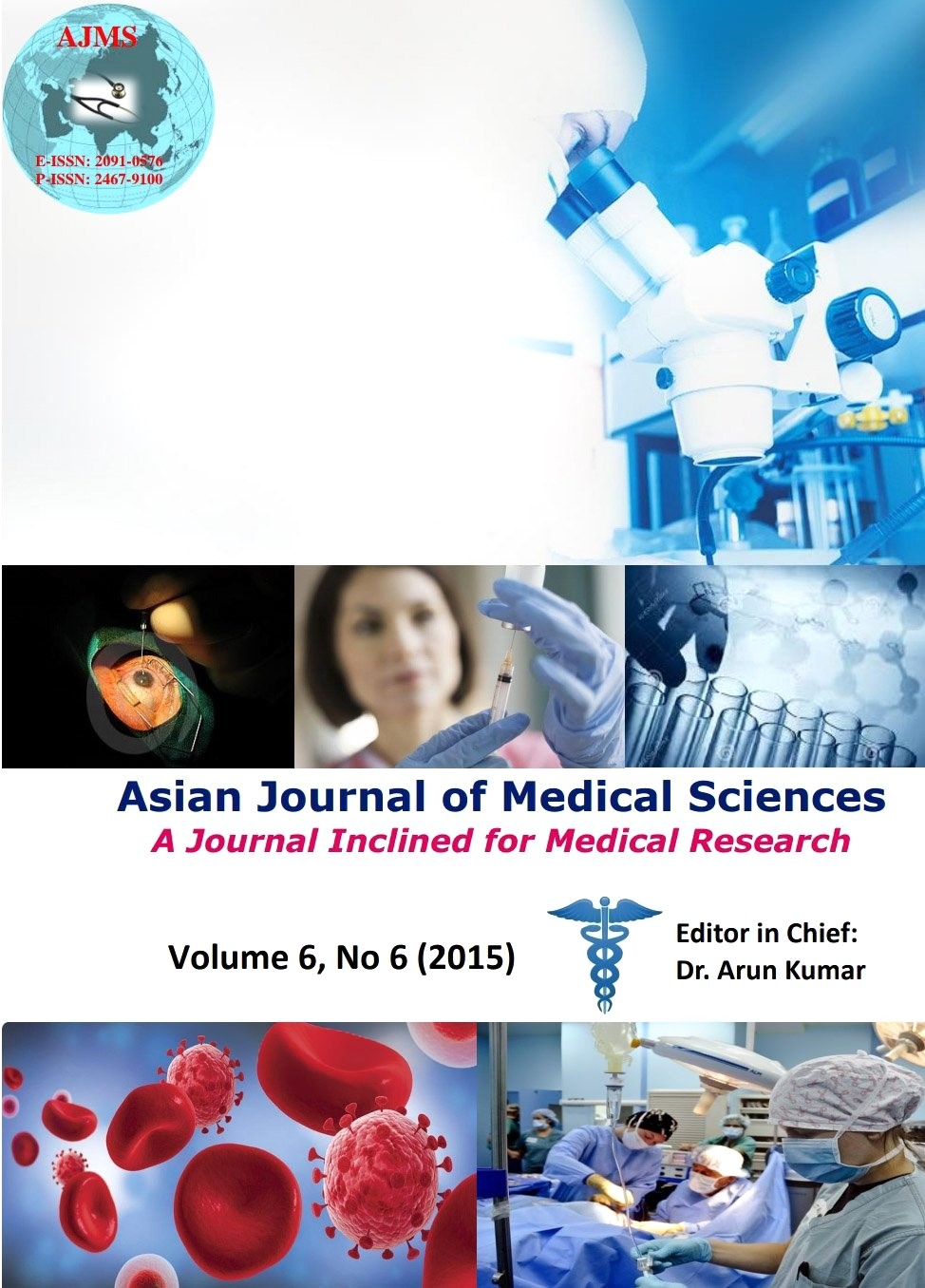Role of depression and its associating factors in indoor orthopaedic patients
Keywords:
Depression, Orthopaedic trauma, Injury, Psychosocial, Major depressive disorderAbstract
Background and Objectives: Depression has acknowledged and well documented, is common among orthopaedic inpatients may be associated with functional outcomes. Authors aimed to investigate the role, prevalence and associating factors of depression disorder in orthopaedic inpatients. Materials and Methods: A cross-sectional study is designed among patients that admitted at SAIMS, Indore. Four hundred twenty six orthopedic patients were recruited for study. The demographic and clinical measurements were recorded. Levels of depression were assessed by using Zung’s depression scale. Results: Depressive disorder was identified in 87.6% indoor patients significantly (p<0.001) influenced female more than male. The mean depression score in female (67.37±11.75) was significantly higher than male (62.29±12.20). The prevalence of extreme/major depression in female (46.6%) was higher as compared to male (25.7%). Type of trauma was found significantly (p<0.05) associated with depressive disorder. 38.1% male with traumatic condition and 20.0% with non-traumatic condition had moderate depression in comparison to 31.4% and 13.6% female. Depressive disorder was found significantly associated with sex (p<0.001), socio-economic status (p<0.001), length of ortho-illness (p<0.001), length of stay in hospital (p<0.001), exercise/yoga (p<0.05) and type of injury (p<0.05). Conclusions: Higher incidence of depressive disorder recorded in female. Prevention and treatment require more clinical and research attention to reduce the public health burden of depression. The study suggested that higher depressive disorder does occur in indoor orthopaedic patients that associated with various functional outcomes. This study supports the view of depressive disorder was disabling factor in better functional recovery and frequent in female after orthopedic trauma.DOI: http://dx.doi.org/10.3126/ajms.v6i6.12478
Asian Journal of Medical Sciences Vol.6(6) 2015 70-76
Downloads
Download data is not yet available.
Abstract
1139
PDF
897
Downloads
Additional Files
Published
2015-06-16
How to Cite
Jain, R., Rishi, R., Sharma, B., & Kiyawat, V. (2015). Role of depression and its associating factors in indoor orthopaedic patients. Asian Journal of Medical Sciences, 6(6), 70–76. Retrieved from https://nepjol.info/index.php/AJMS/article/view/12478
Issue
Section
Original Articles
License
Authors who publish with this journal agree to the following terms:
- The journal holds copyright and publishes the work under a Creative Commons CC-BY-NC license that permits use, distribution and reprduction in any medium, provided the original work is properly cited and is not used for commercial purposes. The journal should be recognised as the original publisher of this work.
- Authors are able to enter into separate, additional contractual arrangements for the non-exclusive distribution of the journal's published version of the work (e.g., post it to an institutional repository or publish it in a book), with an acknowledgement of its initial publication in this journal.
- Authors are permitted and encouraged to post their work online (e.g., in institutional repositories or on their website) prior to and during the submission process, as it can lead to productive exchanges, as well as earlier and greater citation of published work (See The Effect of Open Access).




